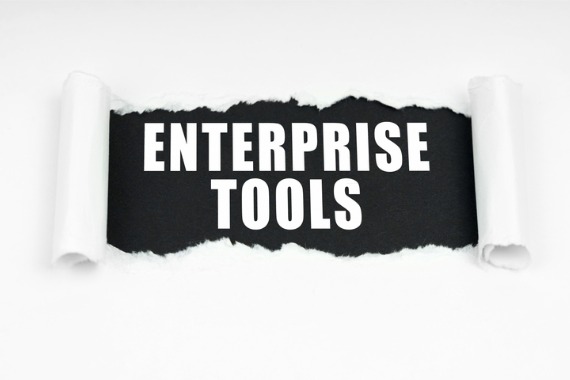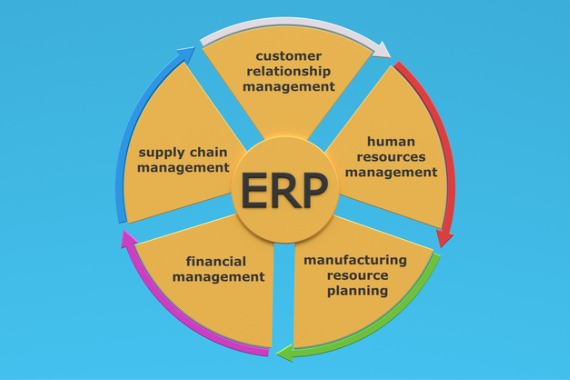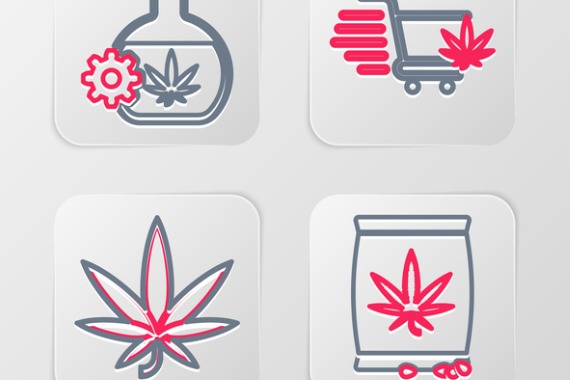Taming the Cannabis Software Jungle with a Managed Approach
Though bursting with potential, the legal cannabis industry is still fraught with unique challenges. To count a few, there’s the strict regulatory requirements and of course meticulous inventory management. Then there are strategic sales conditions and the need for influential customer relationship management in a digital world with even more restrictions… you could say cannabis still has many, many unique challenges.
Yet despite technology at the heart of these challenges, it’s tech and software solutions that have become essential in navigating them. With the requirement for specialized tools across every cannabis business, managers often find themselves grappling with an overload of software solutions, leading to a jungle of applications that hinder (rather than help) operations.
How can all this specialized software streamline operations for a cannabis biz, and is a managed Best-of-Breed approach a potential solution to tame the cannabis business software jungle?
Software Overload in Cannabis?
The cannabis industry’s distinct requirements necessitate an arsenal of specialized software tools. Each crucial area, from regulatory compliance and inventory tracking to sales and customer relationship management, demands its own set of features. For example, regulatory compliance software ensures adherence to stringent laws across regions.
Sales software assists in streamlining sales processes, while customer relationship management tools enhance customer retention and satisfaction. Inventory management software aids in maintaining optimal stock levels, tracking product movement, and reducing waste. While these specialized software solutions are beneficial in isolation, when combined, they lead to a zombie-like existence of software overload.
Software overload is that overwhelming and counterproductive scenario where multiple software applications are used concurrently. This state of affairs results in inefficiencies, confusion, compliance risks, and, ultimately, a loss of productivity. Much like navigating a dense jungle, each tool becomes another vine or branch to get tangled in rather than a path to efficiency.
The cognitive load of switching between applications alone, learning new interfaces, and managing disparate data sources drain employees’ energy while also diverting their focus from core business activities.
While the need for specialized software in the cannabis industry is undeniable, the risk of software overload cannot be overlooked.
Specialized Software, Like it or Not
In a rapidly evolving cannabis industry, specialized software solutions are crucial in ensuring smooth operations and regulatory compliance. Each area of operation demands a tailored solution designed to address its unique challenges.
Though state-mandated, regulatory compliance software is needed for the strict and frequently changing laws governing the cannabis industry. This software helps businesses stay up-to-date with regulations, maintain accurate records, and avoid costly penalties.
Similarly, inventory tracking software is essential to manage the flow of cannabis goods from cultivation to sale, helping to track product movement, manage stock levels, and reduce waste, thereby optimizing operations and maximizing profitability.
On the other hand, sales software streamlines the sales process by tracking customer interactions, managing orders, and generating insightful sales reports, a vital tool for improving revenue and customer satisfaction.
Lastly, customer relationship management (CRM) tools help cannabis businesses retain customers and build strong relationships, with capabilities to store customer information, track interactions, and analyze customer behavior, contributing to enhanced customer experience and loyalty.
While these specialized software solutions offer significant benefits, their isolated use leads to the state of software overload described above. So what are the benefits of specialization without the downside of overload?
What is the Managed Best-of-Breed Approach?
In response to the software overload issue, the managed Best-of-Breed approach emerges as a powerful solution. This strategy involves integrating several specialized technology services from different vendors, each considered the ‘best’ in its specific function, into a cohesive, fully managed system.
In the context of cannabis, this means uniting your state-mandated compliance software with a preferred inventory tracking system, sales platform, and CRM tool into one integrated environment.
The managed Best-of-Breed approach offers several advantages:
- It enables businesses to select proven applications that offer the best functionality for their specific problems, ensuring they have access to the latest and most effective technology.
- Integrating these applications reduces the cognitive load and inefficiencies of switching between different software. Hello, improved workflows and increased productivity.
- The managed Best-of-Breed approach offers growth opportunities to expand the technology stack as the business scales- and you don’t have to think about it..
Notably, the ‘managed’ aspect of this approach means that a single software vendor takes on the responsibility of recommending and managing the other softwares based on their industry experience, removing the burden of dealing with multiple vendors, unique billing, and support systems from the business, further enhancing operational efficiency.
Tame the software jungle and turn it into a well-manicured, productive garden.
Managed Best-of-Breed Tackles Overload
By integrating best-of-breed solutions, cannabis businesses access the most advanced technology in each operational area and ensure the functionality necessary to manage unique challenges effectively. With a solution tailored to each specific need, cannabis businesses can better navigate the complexities of regulatory compliance, inventory tracking, sales, and customer relationship management.
Second, the managed aspect of this approach dramatically simplifies the process of dealing with multiple vendors. With a single vendor managing the integration of various software solutions, companies remove the burden of dealing with unique billing systems and support structures, greatly reducing administrative overhead and freeing up time and resources to focus on core business activities.
Third, the managed Best-of-Breed approach promotes operational efficiency and productivity by eliminating the need to constantly switch between different software solutions, streamlining workflows and increasing efficiency.
And finally, the flexibility of this approach allows for easy scaling as the business grows– think of it this way: as new needs arise, you can seamlessly integrate additional best-of-breed solutions into the existing system, ensuring that the software environment evolves in line with the business, supporting its growth every step of the way.
Taming the Software Jungle with a Managed Approach
The fast-paced, regulatory-intensive nature of the cannabis industry demands efficient software solutions that cater to its unique challenges. While specialized software solutions provide functionality tailored to specific operational areas, their isolated use can lead to software overload, characterized by inefficiencies and a high cognitive burden.
The managed Best-of-Breed approach emerges as an effective solution to this problem. Integrating several specialized technology services from different vendors into a single, fully managed system offers the benefits of specialization without the downside of overload.
It’s time to tame the cannabis business software jungle with this holistic and future-ready approach.







